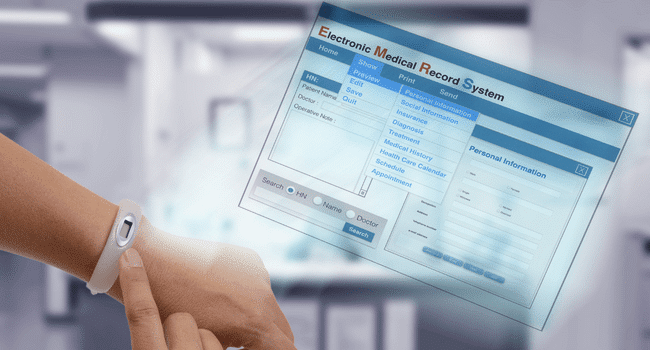Table of Contents
EMR (electronic medical records) and EHR (electronic health records) are both digitized copies of a patient’s medical history. There is, however, a distinction between the two that healthcare practitioners should be aware of. EMR and EHR may appear to be synonymous, yet they have distinct definitions, roles, and advantages. In this article, we will look at the distinctions between EMR and EHR.
What is EMR?
EMR is an abbreviation for electronic medical records. An electronic medical record (EMR) is a computerized representation of a patient’s medical records. It includes a patient’s medical history, diagnosis, prescriptions, test findings, and other pertinent medical data. EMRs are often utilized in a single healthcare facility, such as a hospital or clinic, and are largely used by medical personnel. EMRs are intended to assist doctors, nurses, and other healthcare providers in providing better care to their patients.
Healthcare practitioners frequently construct and manage EMRs. They are used to capture real-time patient information and may be updated as needed. EMR systems have a narrower scope than EHRs and are not intended to be shared with other healthcare practitioners outside of the healthcare facility where they were developed. EMRs are typically designed for usage inside a single healthcare organization and are not easily transferable across them.
Benefits of EMR
EMRs provide several advantages to healthcare practitioners. By giving up-to-date medical information, they can assist eliminate mistakes and increase patient safety. EMRs can also serve to increase communication among healthcare practitioners by streamlining workflows. EMRs can assist cut paperwork and storage expenses while also improving data security.
What is EHR?
EHR is an abbreviation for electronic health records. EHRs are computerized copies of a patient’s complete medical history. EHR systems incorporate all of the information contained in an EMR as well as information from other healthcare providers, such as specialists or other hospitals. EHRs are more extensive than EMRs and are intended to be shared across healthcare professionals.
EHRs are generated and maintained by healthcare practitioners, but they may be accessed by other healthcare providers outside of the institution that created them. EHRs can assist healthcare practitioners in coordinating treatment and ensuring that patients receive the best care possible. By allowing patients access to their medical information, EHRs can also help patients become more active in their care.
Benefits of EHR
EHRs give several advantages to both healthcare practitioners and patients. EHRs can assist enhance patient safety by giving healthcare practitioners up-to-date medical information. EHRs can also assist enhance communication and minimize mistakes among healthcare practitioners. EHRs can help cut paperwork and storage expenses while also improving data security. By allowing patients access to their medical information, EHRs can also help patients become more active in their care.
Differences between EMR and EHR
While EMRs and EHRs have certain commonalities, they also have numerous distinctions. The main distinction between EMRs and EHRs is their breadth. EMRs have a narrower scope and are intended to be utilized inside a single healthcare organization. EHRs are more extensive and are intended for sharing among healthcare companies.
Interoperability is another distinction between EMRs and EHRs. Often, EMRs are not meant to be compatible with other healthcare systems. EHRs, on the other hand, are meant to be interoperable and accessible to healthcare practitioners outside of the institution that established them.
EHRs are also more patient-centered than EMRs. EHRs allow people to access their medical information and become more active in their care. EMRs are primarily intended for usage by healthcare practitioners and are not intended for patient access.
Lastly, in terms of the volume and kind of information contained, EHRs are more thorough than EMRs. EHRs may save information from several healthcare providers and give a comprehensive picture of a patient’s medical history. In contrast, EMRs often store information from a single healthcare company.
Choosing between EMR and EHR
Healthcare providers should evaluate their requirements and goals while picking between EMR and EHR. An EMR may be adequate if a healthcare institution works in a closed system and does not need to exchange patient information with other organizations. An EHR is required, however, if a healthcare company has to exchange patient information with other healthcare providers.
While deciding between EMR and EHR, healthcare practitioners should consider patient access in addition to interoperability. An EHR may be a preferable solution if a healthcare institution emphasizes patient participation and wishes to provide patients access to their medical information.
Conclusion
To summarize, while EMR and EHR may appear to be comparable, there are substantial variations between the two. EMRs have a narrower scope and are intended to be utilized inside a single healthcare organization, whereas EHRs are more extensive and are intended to be shared between healthcare organizations.
While deciding between EMR and EHR, healthcare practitioners should evaluate their requirements and goals. Finally, both EMR and EHR bring considerable benefits to healthcare practitioners and patients, as well as the ability to improve the quality of treatment offered.
Read more on KulFiy
Telemedicine App: Benefits, Features, Development
